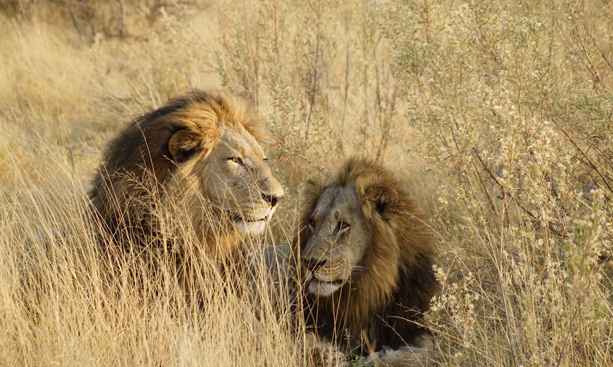The escalating killing of rhinos in the Okavango Delta which has forced government to invest resources to protect them has exposed lions to danger as they have become a target for poachers.
An intelligence report has warned that if not addressed the poaching of the lions might see their number dwindling. Information gathered by this publication has indicated that the burgeoning trade in lion bones in Asia and the United States of America has created an appetite for poachers to target lions from Botswana.
The lucrative business which is said to be booming has led to lions being smuggled from Botswana to South Africa mostly through Namibia. Most of the lions are poached within the Kgalagadi area where patrol is said to be not intensified as the anti-poaching unit are now concentrating on the Okavango Delta fighting the rhino poachers.
This is said to have made it easier for the poachers to smuggle lions to South Africa through ungazeted areas.
Some farmers in the Gantsi area are alleged to be involved in the illicit trade of the lion bones which are smuggled to South Africa, which is the world’s largest legal exporter of lion bones, which in 2017 established an annual export quota for lion skeletons derived from captive breeding facilities. They set the quota of 800 lion skeletons, with or without the skull. The quota was raised to 1,500 in 2018 but then reduced it back to 800 following public outcry.
“Full grown lions are darted and smuggled into South Africa where they are fed into the “canned hunting” industry in South Africa. An average price for a lion hunt is around R 350 000 in South Africa whereas the full skeleton is around R 80 000,” reads an intelligence report.
The report indicates that the illicit trade is deeply rooted among senior government officials in Botswana who help in the smuggling mostly of the lion curbs.
Investigations have established that the syndicate that specializes in the smuggling of the live lions have been traced to have links in Zeerust, South Africa with satellite spots in Vryburg, Kuruman and Kathu area.
Recently a 23-year-old man was arrested in Hartbeesfontein in North West, South Africa for allegedly being in possession of three lion skins and an array of narcotics.
Concerted efforts to contact the Director of Wildlife and National Parks (DWNP) Dr Cyril Taolo and Minister of Environment, Natural Resources Conservation and Tourism Philda Kereng were futile as their mobile phones went into voice mail.
